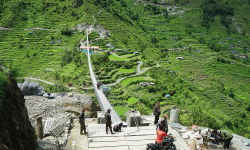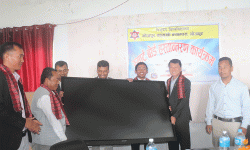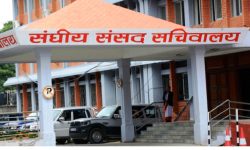Administrative Reforms in Delhi

We all know that Delhi is the capital of India, and its population is poised to two crores in practical terms given the fact that every day more than 50-60 lakhs people move in and out of the state from the neighbouring districts, more precisely, the NCR area.
So, the governance of Delhi State is a tough task because of two reasons: (1) Delhi being the capital of our country, and (2) With passage of time, multifarious agencies come up for carrying out governance related tasks of the state (for instance, MCD, NDMC, Delhi Govt., Urban Development Ministry, Home Ministry, Delhi Police, D.D.A., L&D.O. etc.).
Despite the presence of these varied agencies, Delhi has a 70-member directly elected assembly. We have seen that, during the last 10 years, differences between representatives of the elected Delhi Assembly and the Lt. Governor have been arising from time-to-time. Similarly, cordial relations between the Delhi Govt. and the Delhi Police also were much wanting. Apart from this, many judgements of the Supreme Court and the Delhi High Court tried to curtail governing methodology of the directly elected representatives of the Delhi Govt.Clearly, our Delhi is caught in the tussle between the political and bureaucratic forces entrusted with the governance work.
The basic aim of the administrative reforms is to implement the Citizen welfare Charter. When we talk of putting into effect this Charter, then the bureaucracy is seen to play the most significant role in the process. We notice that promotions and postings of the bureaucrats are
not mostly made on the basis of their work experience or trainings, which happen to be an important aspect. Their APARs are mostly recorded vindictively, which is, obviously, grossly wrong. This tendency is a basic human nature which cannot be done away with through any rule or law but can be perhaps minimised to an extent by inculcating morality in the minds of political bosses/ officers, in general. Only when our bureaucracy is shielded from such possible harm, it can be committed to sound implementation of the welfare schemes.
As aforesaid that the Delhi Govt. is run by multiple agencies, a forum or Dialogue for ensuring coordination amongst them becomes imminent. Furthermore, rules should be clear as regards power and jurisdiction of all the agencies together with laying down limit to any sort of transgression in the individual sphere of work. The most important part in the administrative reforms is how to make Delhi citizenry part of
the governance process. It is only in such scenario that this type of reforms can take place. No administrative reform is possible without judicial reform. Administrative reform refers to the implementation of a citizen’s charter in the true spirit, and it is not possible without “justice.”
There are numerous “pros and cons” involved in implementation, which is why citizens and organizations turn to the courts for resolution. This highlights the urgent need for judicial reform to ensure timely and effective justice. Currently, there are more than 5 crore cases pending in our country in our various Courts some for over 30 years.
If we look at the history of our country for the last 20 years, the work which should be done by the Legislator (Vidhayak) is being done by the Court. Even the political fights of political parties are being settled by the Court. Therefore, judicial reform is necessary.
Over the last 20 years, the role of police administration has been crucial. In fact, it can be said that the police play an important role in the implementation of every policy. Even in the implementation of minor policies, the involvement of police is significant. For example – checking of electricity meters or even during drainage excavation work, we often rely on the assistance of police.
This need for police involvement was not as evident in the past, because now society is increasingly facing lawlessness, so their help is needed in civil works as well. It is crucial to consider how we can minimize or eliminate the role of the police in these implementations.
Perhaps we can stop this by making strict rules according to society’s needs within the legal framework. We have seen in Europe that there are many such rules that we can view from the perspective of lawlessness in our country. For example, if a person is above 70 years of age
or is handicapped, he can park his vehicle anywhere for 20 minutes, of course not in the middle of the road. Its main purpose is that if any senior citizen or handicapped person wants to buy medicine or food items for themselves, then this facility is for them.
This means that laws should be in accordance with the sentiments of the citizens. In the true sense, administrative reform is not possible without reform in bureaucracy, the judiciary, police, and rules and regulations. One aspect of administrative reform should be to eliminate the “actor” attitude in organizations, as this leads to a sense of ruling in our bureaucracy rather than providing assistance.
There are 3-4 strong lobbies in bureaucracy in Delhi, for instance, Biharis, Meena, Kayasthas, and Keralites. Other than them, the officers/ staff present here can be categorized on the basis of urban and rural background. Interestingly, the personnel hailing from rural background consider themselves as “rulers,” and not as public servants. The ordinary citizen is unable to get justice because of this attitude of these personnel. While carrying out administrative reforms, it needs to be considered as to how to change this attitude of the bureaucracy.
The attitude of our bureaucracy. We should remember that 1,312 years ago, foreign powers invaded Cultural (Sanskritik Bharat) India, attacked our cultural heritage, and occupied our country. The country was ruled for 1,233 years. Except for a few generations of Mughals, these foreign invaders had only one objective: to loot this country and take its wealth back to their own nations, whether they were invaders from Syria, Iran, or London/Europe. In the 77 years of independence, there have been 30 years during which leaders from the same party have ruled this country, from the panchayat level to the prime minister and president. Because of this, a strong mentality has developed in our bureaucracy — a belief that they are the rulers, not the servants.
The base rulers of our economy over the past 1,213 years exercised their power through the taxes they collected. As a result, the people in rural society perceive the bureaucracy as rulers rather than servants.
This perception leads those in the bureaucracy and administration, especially those from rural backgrounds, to see themselves as rulers instead of servants. However, this attitude is slowly changing.
This process needs to be accelerated through administrative reforms that make the bureaucracy accountable and ensure citizen participation.








Comments